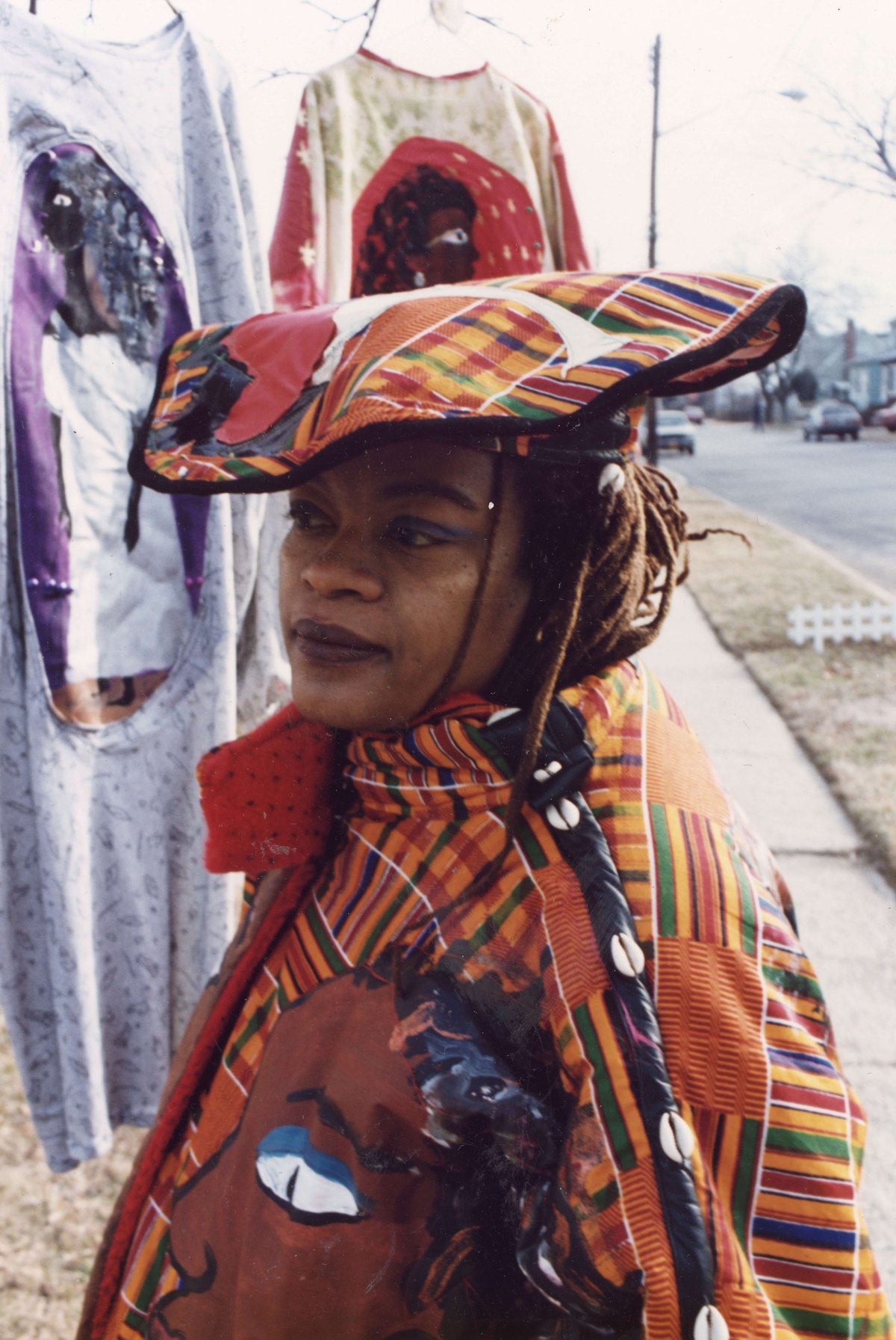Announcing the Phyllis Krim Capsule Collection
Emilie Trice Nov 13, 2023 3 Minute Read
The Feminist Institute is thrilled to unveil a capsule collection of the work of artist Phyllis Krim in partnership with her estate. Learn more from this post by the estate’s curator, Emilie Trice.

Copyright held by the Estate of Phyllis Krim. See record
Phyllis Krim was an artist active in the bohemian circles of New York’s storied downtown scene of the 1960s and 70s. Born in Lebanon, Pennsylvania in 1930, Phyllis earned a joint bachelor of applied arts from the University of Pennsylvania and the Philadelphia Museum College of Art. She was best known for her paintings of classic cars, which she interpreted as allegorical symbols of power, beauty and strength. Phyllis primarily painted her chosen subjects—Bentleys, Ferraris, Buggatis, etc.—from a severe head-on perspective, rendered in a vivid color palette and set against a hyper-flat, two-toned background. This approach resulted in a palpable anthropomorphism that bridged pop art, realism and abstraction.

Copyright held by the Estate of Phyllis Krim. See record
As a woman artist, painting portraits of machines, Phyllis endured sexist resistance to her art throughout her lifetime. She even dropped out of graduate school after her professor threatened to fail her for painting representational scenes of the engineering department’s industrial equipment, rather than the abstract expressionist compositions he preferred. Phyllis later became close friends with the iconic artist Louise Bourgeois, who encouraged her return to art-making and supported her work. In 1976, Louise moderated a panel Phyllis organized entitled “An Alternate View of Women’s Imagery: The Artist as an Individual.” The panel also included acclaimed artist Deborah Remington and was presented at NYU’s Loeb Student Center to accompany Phyllis’s solo exhibition, as well as a screening of “Driving Passion,” the documentary about her work that originally aired on Manhattan Cable TV in 1975.

Copyright held by the Estate of Phyllis Krim. See record
Phyllis’s work was also featured in the seminal exhibition series “10 Downtown,” which culminated in 1977 with survey exhibitions at MoMA PS1 and 112 Workshop (known today as White Columns), curated by legendary critic and feminist ally Lawrence Alloway. Her work was exhibited at the Brooklyn Museum alongside Alice Neel, in numerous galleries and, in 1986, Krim was the first woman invited to be a charter member of the Automotive Fine Arts Society (AFAS). Through her vast creative output, which went far beyond painting to include lithography, etchings, poetry, photography, essays, and hundreds of sketches and studies, Phyllis embodied the spirit of feminist resistance that encompassed the 1970s zeitgeist and metastasized across politics, art, music and literature.

Copyright held by the Estate of Phyllis Krim. See record
At the time of her death in 2014, Phyllis left behind a trove of feminist materials culled from her decades-long career, which have been compiled and curated for digital publication by The Feminist Institute. TFI’s mission of preserving and documenting feminist contributions to culture for posterity and scholarship perfectly aligns with Phyllis’s own artistic, personal and political agendas, as documented by her capsule collection. Ultimately, Phyllis’s work reveals the strength of a woman whose unrelenting obsession with mechanical objects—historically viewed as diametrically opposed to her gender identity—testifies to her cultural significance as both an artist and progressive feminist who was generations ahead of her time.
Emilie Trice is a curator, arts writer, and consultant specializing in contemporary art and new media. She is the curator of the Estate of Phyllis Krim.

